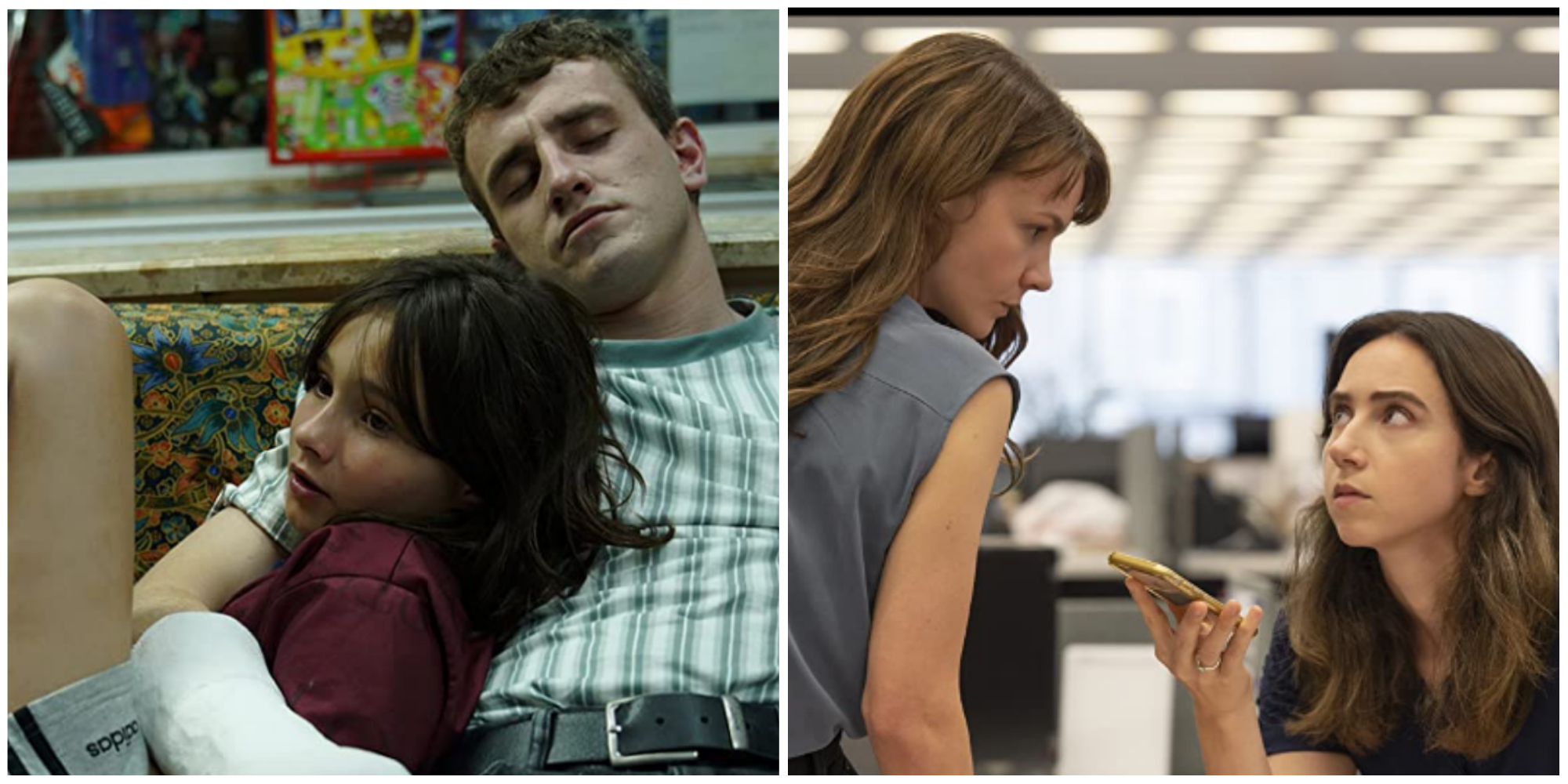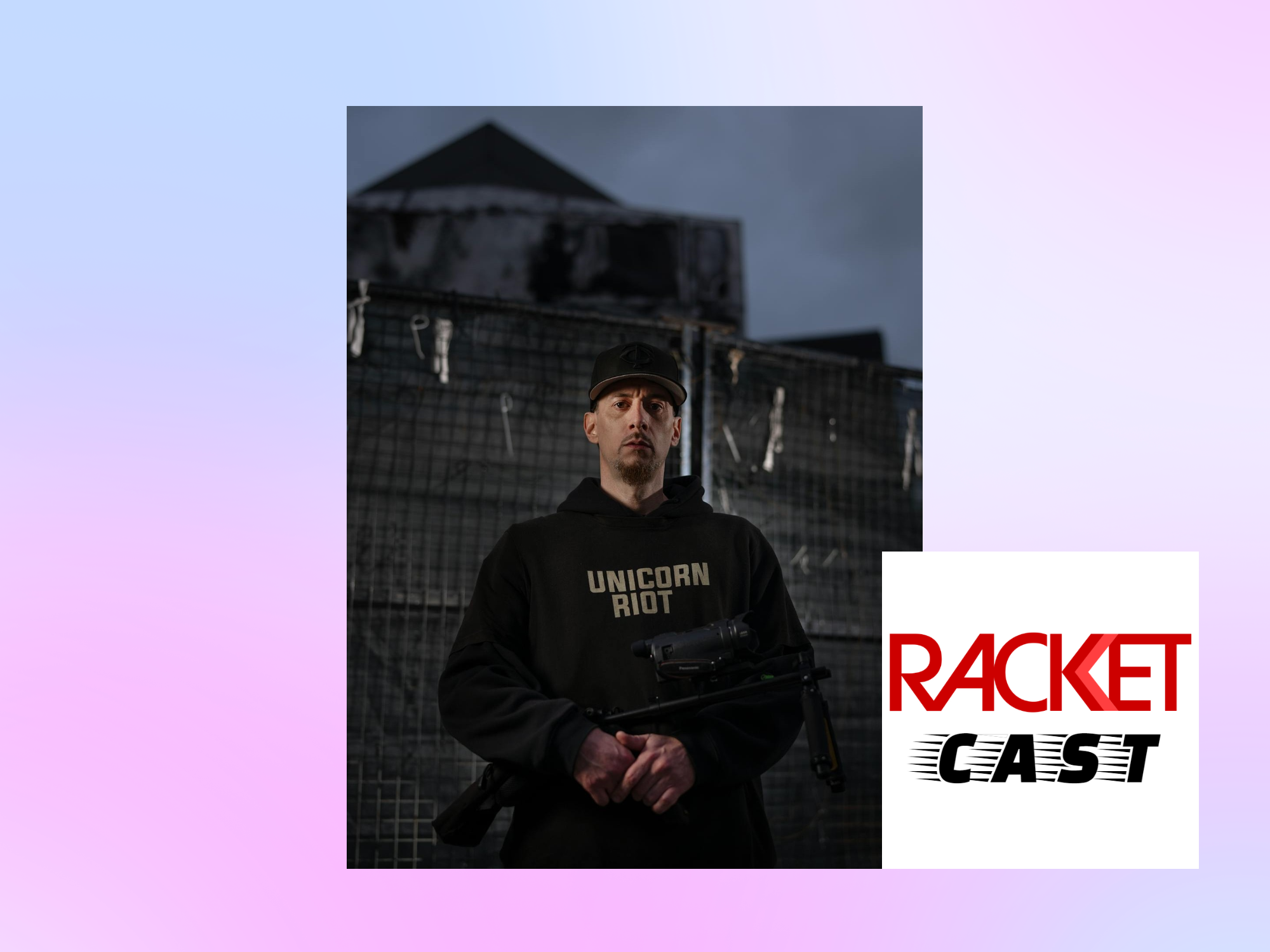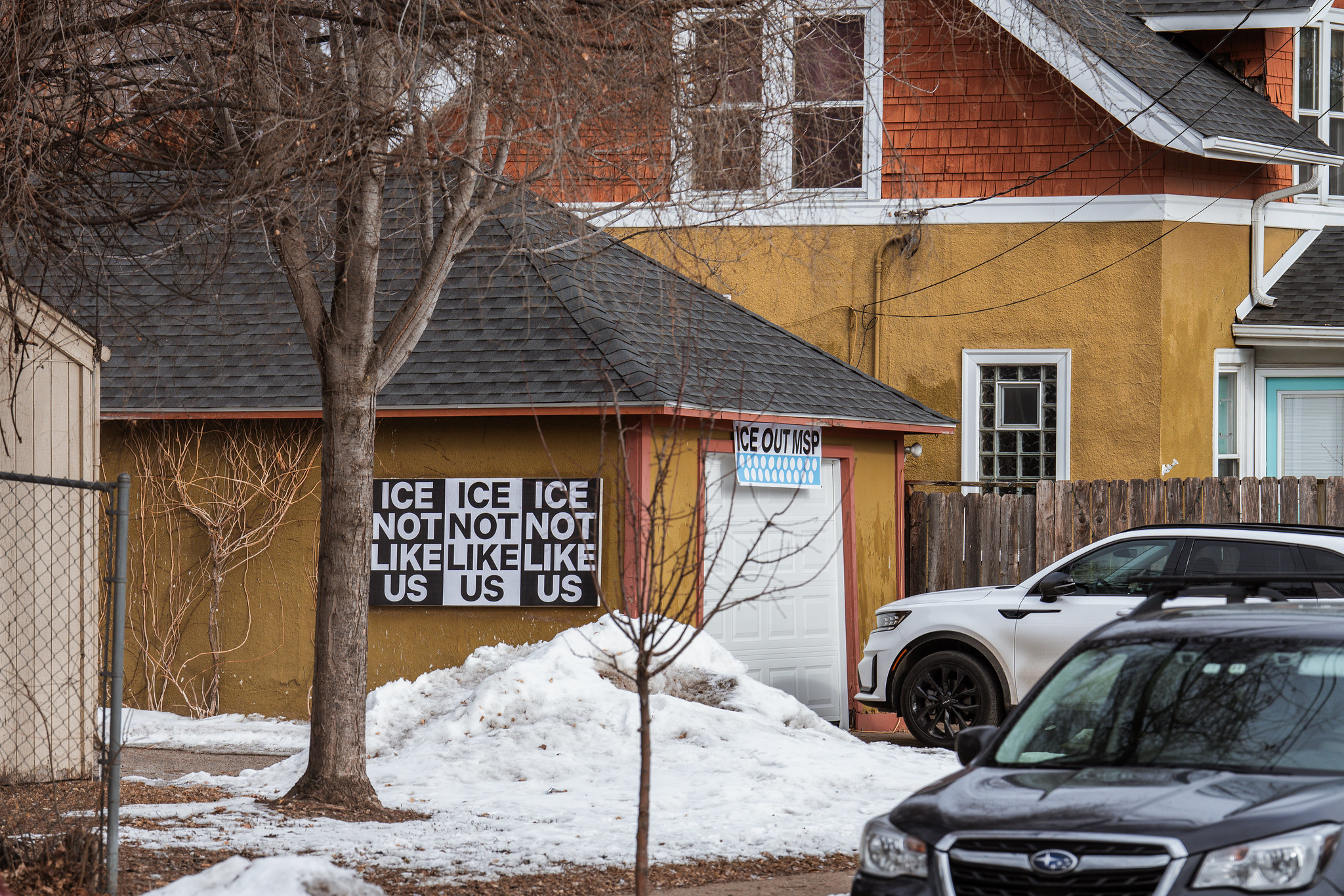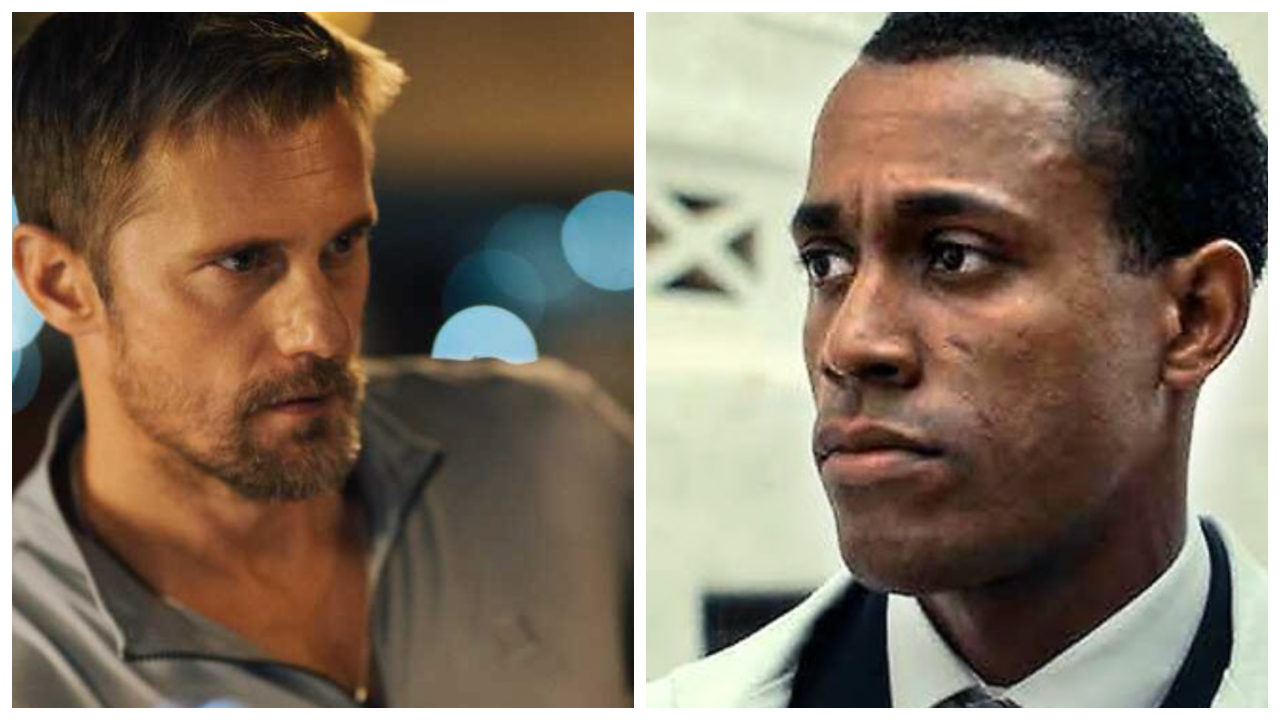Parents are mysterious creatures. They’re seemingly placed on earth for the sole purpose of keeping us alive, but time slowly reveals them to be actual humans like ourselves, with desires and fears and secrets of their own. Aftersun, the remarkable feature-length debut from director Charlotte Wells, follows one 11-year-old girl detective named Sophie (Frankie Corio) along one dreamlike Mediterranean vacation as she attempts to solve the riddle that is her father.
Callum, a young absentee dad played by Paul Mescal (Normal People, Phoebe Bridgers’s boyfriend [UPDATE: ex]) is quite a web to untangle. When he first appears, his hand is in a cast, from some unexplained injury. We witness what may be a half-hearted suicide attempt. And he beats an immediate but sloppy retreat whenever he’s questioned about himself—particularly when Sophie asks him what he expected his life to be like when he was 11.
We also intermittently encounter Sophie many years later, closer to Callum’s age when she last saw him, attempting to decipher the past through her home video footage of the trip. We don’t know exactly what happened, but Mescal carries himself like a man who will not live long. The movie leaves every option open, allowing us to experience loss and distance without supplying the specifics that would provide some sort of narrative cohesion. And Mescal works with this distance masterfully: The closer Wells’s (or Sophie’s) camera approaches him, the less he reveals.
Back in the past, the father and daughter’s lives fall into an easy routine. Long afternoons poolside or seaside are followed by outdoor dinners. They have their tiffs but little visible tension accumulates. Maybe punishing Callum for his distance, maybe hoping to find some answers or her own, or maybe just feeling 11, Sophie strays from him to hang with older kids, and flirts with a boy who races against her on an arcade motorcycle game. As Aftersun drifts along, time meaningless, Sophie’s curiosity is unending, whether she’s watching two men snogging in a doorway, studying the sex habits of her new friends, or pondering her dad’s evasions.
Without ever playing it cute, Corio is funny and perceptive as Sophie in all the ways tweens can be, and more patient and understanding. And for all the questions that remain open, Callum and Sophie communicate physically in a way parents and children often do in real life, yet rarely do in movies. They rub lotion into one another’s backs. He strokes her face tenderly. But when he drops the old dad line “You can tell me anything,” the irony is that he can’t tell her anything.
Aftersun is a movie about memory that casually signifies a specific era without bopping you over the head with obvious needle drops and costume choices. Yes, it’s “the ’90s” (the later ’90s, in fact) and it feels it—something about the sluggish, sun-drenched pace of vacation recalls a less internet-driven age. The music is generally diegetic to start with: a hotel staff performs the Macarena, drunken kids singing along to Chumbawamba, Sophie’s multilayered karaoke rendition of “Losing My Religion.” But as the film progresses, the soundtrack grows more abstract and we’re immersed within a screwed-down version of Blur’s “Tender,” or shown Callum entreating Sophie to dance with him to a remixed “Under Pressure” that fades into a dream sequence.
Where Aftersun succeeds is in its refusal to tell us anything it doesn’t show us, its willingness to let the mystery be as these two characters circle each other curiously. At the risk of coming on too Ebert-y, I could have spent another two hours on this vacation; I’ve been thinking about Aftersun constantly since I saw it. Not everyone at Southdale agreed. When the movie ended, a man turned toward the rest of the audience, on his way out of the theater, "Can anyone tell me what I just watched?" Buddy, if you have to ask...
News reporting can be like detective work too, though in some cases you know, Colombo-like, whodunnit and need to find the witnesses who’ll provide you the evidence. That’s the case in She Said, which quietly bends the conventions of the true-life journalism film while hardly upending the genre. Rather than following clues to their big story, New York Times reporters Megan Twohey (Carey Mulligan) and Jodi Kantor (Zoe Kazan) know their target—blustering Miramax bully and sex predator Harvey Weinstein—and are armed with heavily corroborated first-person accounts, but need to convince their sources to go on the record.
Based on a book that was in turn based on a Times story, She Said is familiar material by now. But it’s long past time for two women (two moms, at that) to Woodward and Bernstein their way onto the screen, and I’m pretty sure we’ve never before seen a character power her way through postpartum depression by immersing herself in investigative journalism, as Twohey does here.
We meet Twohey first in 2016, in the process of convincing the Miss Universe contestants who accused then-candidate Donald Trump of sexual abuse to publicly share their stories. After publication, the reporter’s delight at a phone rant from the sleazy groper himself ebbs when she learns a source just received an envelope filled with shit in the mail. As Trump stumbles consequence-free into the Oval Office that fall, She Said deftly sets out the stakes: By going on the record, these women are likely to encounter further abuse, while the perpetrators will likely slither away unscathed.
Sidelined from work by maternity leave, Twohey returns when Kantor decides to investigate Weinstein, who has a history of dodging credible accusations from his victims. They soon establish themselves as a complementary team. Twohey is the schooled shark, just as charming as she needs to be to outwit an older male political operative or two. Mulligan's smirk, once flirty and precocious, has deepened into a knowing signal of awareness over the years. But Kazan’s endearing earnestness as Kantor the young crusader is what carries the movie as the two uncover the apparatus that silences women within the industry—not just raw male power, but non-disclosure agreements and unfair settlements.
She Said is also a good, if subtle, introduction for a broader audience to Maria Schrader, the German actor who came into her own as a director last year with the understated human-droid romance I’m Your Man and the limited series Orthodox. Schrader is sly about flashbacks, never over-reliant on recreating the past or editing in violence for cheap docudrama effect. When she replays a taped 2015 interchange between Weinstein and model Ambra Battilana Gutierrez, who the producer has trapped in his hotel room, the camera settles on a static shot of the hallway outside. You couldn’t have scripted a sex predator’s manipulations better, and you couldn’t have made the scene more effective by showing more.
Maybe inevitably, She Said is something of a puff piece about the Times. The editorial staff is unflaggingly supportive of its two reporters; in fact, the Times looks like one of the friendliest places to work on earth, which can’t possibly be true, can it? Fairly enough though, She Said demonstrates that investigative reporting on this level requires a lot of time and money, an argument for legacy media whether you like it or not. And the movie smartly ends with the scariest moment in any journalist’s daily life: the moment you click “publish” in the CMS.
Though the film capably builds up Weinstein up as the genuine threat few (if any) have denied he is, its rests, as it should, on the testimony of the women Weinstein abused. At the core are several extended monologues from Jennifer Ehle as Laura Madden, Samantha Morton as Zelda Perkins, and Angela Yeoh as Rowena Chiu. (The real-life Ashley Judd, who went on record for the original Times story, also shows up; Rose McGowan and Gwyneth Paltrow appear via voice actors.) Whether you want to watch actors reliving the most harrowing days of these women’s lives is a certainly a question to consider, one the women in question (who were consulted throughout the filmmaking process) were asked to do themselves, and one the film itself grapples with.
Aftersun and She Said are now playing in local theaters.






